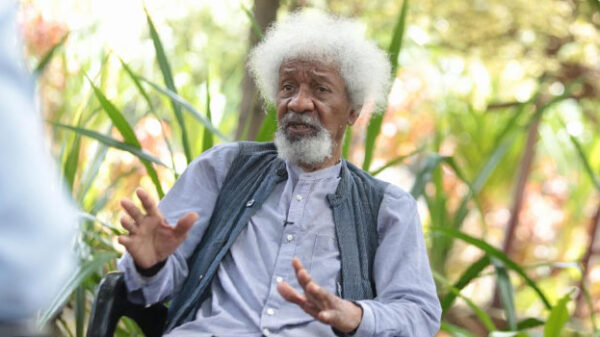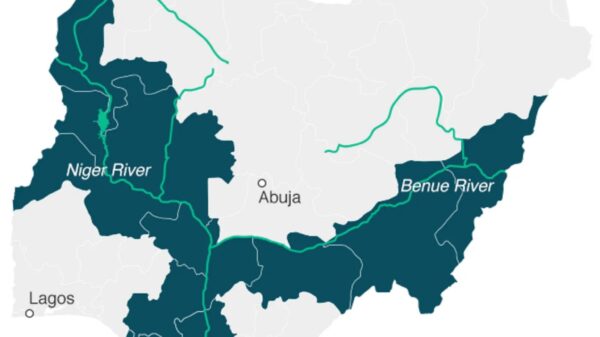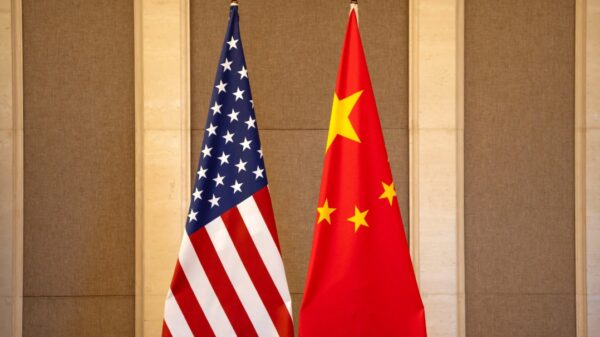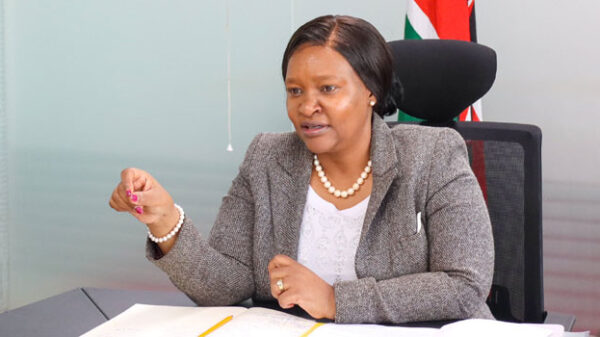
Muite categorically rebuffed the claims, insisting that Pattni had never paid him to go quiet on Goldenberg. He said that he was in fact the lead counsel representing the Law Society of Kenya in its quest to unearth the multi-billion shilling scam/COURTESY
NAIROBI, Kenya, Feb 25 – Eight presidential candidates vying in next Monday’s general election were taken to task over their role in some of the country’s greatest corruption scandals.
The night’s co-moderator Uduak Amimo set the ball rolling when she sought answers over the Goldenberg scandal, the Kazi Kwa Vijana programme, the Mavoko Cemetery land scam, the misappropriated free education funds and later the disputed 2007 presidential elections.
Safina candidate Paul Muite was put to task over sensational claims by Goldenberg architect Kamlesh Pattni in the 1990s, claiming that he had paid the renowned lawyer a Sh20 million bribe.
Muite categorically rebuffed the claims, insisting that Pattni had never paid him to go quiet on Goldenberg. He said that he was in fact the lead counsel representing the Law Society of Kenya in its quest to unearth the multi-billion shilling scam.
“There isn’t an iota of truth on that. Individuals around me may have received money, but Muite never received any money” he said.
The Goldenberg scandal involved ex-gratia payments for fictitious exports of gold in the 1990s and massive money laundering using now collapsed banks.
United Democratic Forum candidate Musalia Mudavadi who claims to have stopped the fictitious trade in gold was equally put to task after his response that he was appointed to the Treasury to sort out the Goldenberg mess. His response did not satisfy Muite who asked the DPM why the Treasury paid out a further Sh3 billion while he was at the helm.
Kenneth and Muite challenged Mudavadi to come clean on the Goldenberg payments stating that a big chunk of payments were paid during his tenure as Finance Minister.
Muite affirmed that “almost 75 per cent of the Goldenberg payments were paid during his (Mudavadi’s) term.”
The UDF leader defended his record, saying that his two rivals were basing their questions on misleading information.
“I am on record that I stopped Goldenberg payments… my colleagues are misled,” he said.
The DPM was also taken to task over the dubious acquisition of land by the Nairobi City Council to be used as an alternative cemetery, to which he said that matter was handled with the seriousness it deserved.
Mudavadi said he had written a letter to Kenya Anti-Corruption Commission asking them to probe the irregular procurement of cemetery land in Mavoko municipality.
Prime Minister Raila Odinga was also questioned over the Kazi Kwa Vijana program and the resultant loss of funds.
Odinga defended his office by stating that the project was conceived in good faith with his office taking “a merely co-ordinating role.”
“Execution was done by six line ministries. About 300,000 jobs were created for the youth. We carried out an audit and it was found out there were some audit issues and action was taken. The World Bank eventually gave a clean bill health,” he said.
Narc-Kenya’s Martha Karua who had earlier in the debate taken the role of ‘whistleblower’ by reminding her rivals of their own shortcomings found herself being exposed to questions as to why she failed to protect whistleblowers like former ethics and ant–graft czar John Githongo and former Central Bank employee David Munyakei who blew the lid on the Goldenberg scandal.
She was asked to explain why as Justice and Constitutional Affairs Minister in 2007, she ‘ganged up’ with other ministers to denounce Githongo instead of assuring him of security.
Githongo had at the time fled the country after unleashing an audio recording between him and a Cabinet minister in the Anglo-Leasing scandal.
In her response Karua said she never denounced Githongo but only made a joint statement with the then Information Minister Raphael Tuju to state the government stand.
“The Anglo Leasing scandal came out under my tenure. As minister I printed an advert to explain the whole thing and on my recommendation ministers stepped aside,” she said.
She was hard pressed to explain why she could not give State protection to Munyakei.
Her response claiming that she there was no enabling legislation for witness protection did not go well with Muite who told her that she had failed in securing a witness to Kenya’s greatest scandal.
The Narc-Kenya leader did not escape queries by Muite and Odinga of sidelining opposition parties in 2007 when she was Justice Minister and when appointing commissioners to the now defunct Electoral Commission of Kenya. She was also accused of blocking other reforms in government.
“My sister here failed to consult us and went ahead to appoint new (electoral) commissioners. It was a game in which a player turned referee leading to the mess that happened after the elections,” said Odinga.
Karua said that at the time, Odinga’s Liberal Democratic Party did not have representation in Parliament, arguing that all MPs were under the umbrella of the National Alliance Rainbow Coalition.










































